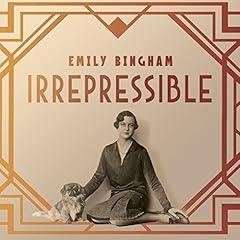
My Old Kentucky Home
The Astonishing Life and Reckoning of an Iconic American Song
No se pudo agregar al carrito
Solo puedes tener X títulos en el carrito para realizar el pago.
Add to Cart failed.
Por favor prueba de nuevo más tarde
Error al Agregar a Lista de Deseos.
Por favor prueba de nuevo más tarde
Error al eliminar de la lista de deseos.
Por favor prueba de nuevo más tarde
Error al añadir a tu biblioteca
Por favor intenta de nuevo
Error al seguir el podcast
Intenta nuevamente
Error al dejar de seguir el podcast
Intenta nuevamente
 Exclusivo para miembros Prime: ¿Nuevo en Audible? Obtén 2 audiolibros gratis con tu prueba.
Exclusivo para miembros Prime: ¿Nuevo en Audible? Obtén 2 audiolibros gratis con tu prueba.
Elige 1 audiolibro al mes de nuestra inigualable colección.
Acceso ilimitado a nuestro catálogo de más de 150,000 audiolibros y podcasts.
Accede a ofertas y descuentos exclusivos.
Premium Plus se renueva automáticamente por $14.95 al mes después de 30 días. Cancela en cualquier momento.
Compra ahora por $18.00
-
Narrado por:
-
Emily Bingham
-
De:
-
Emily Bingham
MY OLD KENTUCKY HOME, from its enormous success in the early 1850s, written by a white man, considered the father of American music, about a Black man being sold downriver, performed for decades by white men in blackface, and the song, an anthem of longing and pain, turned upside down and, over time, becoming a celebration of happy plantation life.
It is the state song of Kentucky, a song that has inhabited hearts and memories, and in perpetual reprise, stands outside time; sung each May, before every Kentucky Derby, since 1930.
Written by Stephen Foster nine years before the Civil War, “My Old Kentucky Home” made its way through the wartime years to its decades-long run as a national minstrel sensation for which it was written; from its reference in the pages of Margaret Mitchell’s Gone with the Wind to being sung on The Simpsons and Mad Men.
Originally called “Poor Uncle Tom, Good-Night!” and inspired by America’s most famous abolitionist novel, it was a lament by an enslaved man, sold by his "master," who must say goodbye to his beloved family and birthplace, with hints of the brutality to come: “The head must bow and the back will have to bend / Wherever the darky may go / A few more days, and the trouble all will end / In the field where the sugar-canes grow . . .”
In My Old Kentucky Home, Emily Bingham explores the long, strange journey of what has come to be seen by some as an American anthem, an integral part of our folklore, culture, customs, foundation, a living symbol of a “happy past.” But “My Old Kentucky Home” was never just a song. It was always a song about slavery with the real Kentucky home inhabited by the enslaved and shot through with violence, despair, and degradation.
Bingham explores the song’s history and permutations from its decades of performances across the continent, entering into the bloodstream of American life, through its twenty-first-century reassessment. It is a song that has been repeated and taught for almost two hundred years, a resonant changing emblem of America's original sin whose blood-drenched shadow hovers and haunts us still.
Los oyentes también disfrutaron:




















Las personas que vieron esto también vieron:

Outstanding in several ways. Highly recommended.
Se ha producido un error. Vuelve a intentarlo dentro de unos minutos.
Her exploration of the song’s past and present is engaging, illuminating, and unsettling. Bingham analysis of the origin and use of My Old Kentucky from its composition until just this May (and so many before) makes the easy sentimentality of “sing one song…” much less easy.
Professor Bingham makes us see that the lyrics, in fact, tell the sad story of a slave being sold literally down the river from Kentucky to the Deep South, rather than expressing a universal longing for home. Yes, they are less militantly racist than Maryland, My Maryland (just recently dropped as the state song of Maryland), but they are all the more seductive for that. The bright sunshine, ripe corn tops, and blooming meadows create a wistfulness for a home far away that distracts us from the true cause of the longing Stephen Foster memorialized.
Recent changes to Foster's original lyrics – "old folks" in the place of racially charged language and the truncation of the song after the first verse – do less to correct the past than disguise it.
It will be hard to hear “weep no more my lady…” next May without being reminded of the deep roots of Kentucky and all of the nation in racial injustice and the race-based cruelty of slavery. And that, I think, is just as well.
This is a terrific book.
Sing One Song... But Which One
Se ha producido un error. Vuelve a intentarlo dentro de unos minutos.
Important and engaging book
Se ha producido un error. Vuelve a intentarlo dentro de unos minutos.
Powerful story. Weak performance.
Se ha producido un error. Vuelve a intentarlo dentro de unos minutos.


